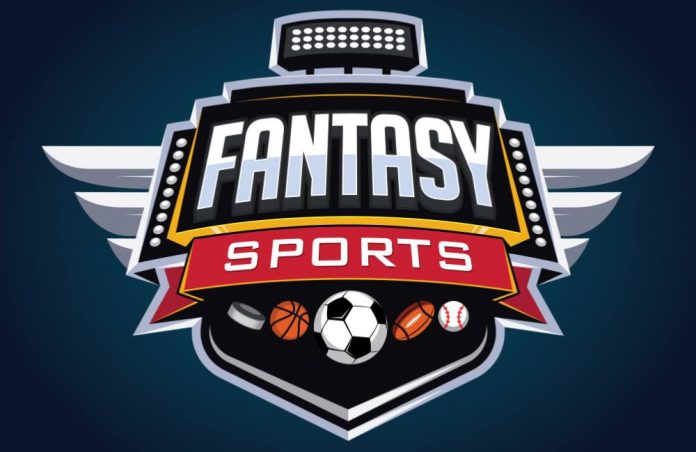This article has been written by Raslin Saluja from KIIT School of Law, Bhubaneswar. The author in this present article analyzes the evolution of fantasy sports and their legality through a regulatory lens.
Table of Contents
Introduction
“Dream XI mein team bana lo”! If you are an ardent cricket fan, there is no excuse for you not knowing what this means. Even if you are not a cricket fan, you must have heard of this line either through tv ads or internet memes. Such is the craze of the rising fantasy sports in India. It was not long ago when the industry had just set in India to get the ball rolling, that today it has already witnessed a three-fold jump in the revenue of the financial year 2020. As there is already a surge in the market with new players moving in, MPL, Dream 11, My 11 Circle, Balle Baazi, Fan fight, etc have already become some prominent players.
Had it not been for the exponential advancement in technology, the industry would not be explored. Though fantasy sports games found their origin in fantasy sports popular among some hardcore sports fans, with the advent of information technology, they seem to have found a new fan base with ever-increasing popularity and engagement in the Indian gaming market. Earlier these used to exist in small groups due to limited popularity and long hours, however in the modern age of enhanced digitalization, easy access to internet services, and availability of multiple platforms, have exposed the concept to an even larger audience than ever. This in turn has resulted in the need to protect the consumer interest and formulate best ethical practices by closely scrutinizing its regulations.
History
They have existed since the early 1960s back when a psychology professor Bill Gamson of Harvard University created ‘The Baseball Seminar’’- to be played amongst the college professors who would get entry on paying ten dollars and form a team of baseball players. The winner was selected based on the performance of those players in an actual Major League Baseball season. These began to gain popularity and evolved into a league called ‘Rotisserie League’ where the regular discussion was held and created Rotisserie baseball which took place privately till 1994.
Though earlier, it was played mainly among friends, today with the aid of technology it has become a global commercial enterprise. It has connected people with similar interests from all over the world in the same platform transforming into something more than a mere in-house hobby. Entertainment and Sports Programming Network (ESPN) became the first media company to bring forth fantasy games into the commercial consumer base in the 1990s.
The term covers a wide range and variety of contests that require the participants and players to form virtual teams to compete against each other. It uses statistical data inspired by real-life athlete performances in individual and group-based sporting activities. Typical fantasy sports contests last for a single professional sports season out of which some charge entry fees and pay cash prizes, while others are completely free and can be played amongst friends. There are a variety of sports game options to choose from and the participants are required to use their skills and insight to play and form a team that they believe will perform better. The concept has gained popularity because of being a game of skill as well as of chance.
Regulating fantasy sports
The acceptance and success of fantasy sports were predictable, considering the thriving fan base for various sports. There has been a rise in the number of fantasy sports operators by seven-fold times between 2016 and 2018, whereas the user base grew over 25 times between June 2016 and February 2019. Investments up to USD 166 million (approx.) were made in fantasy sports operations during 2018 -2019. At present Dream 11 has become one of the largest fantasy sports.
Legislative provisions
Many questions have been raised regarding the legitimacy of fantasy sports ever since it gained popularity in India. So far it has not been recognized as a subject under Schedule VII of the Constitution of India, while gambling and betting have been placed under List II, Entry 34 of Seventh Schedule within the state powers. Thus it grants different states power to legislate upon the subject.
Earlier, matters pertaining to gambling and betting were dealt with under the Public Gambling Act, 1867 (PGA) which expressly prohibits being in charge of a public gaming house in India, and even till today is followed in some states, while many others derive their power from the List II. PGA imposes its penal provisions under Section 3 and Section 4 of the Act.
Skill versus chance conundrum
As per Section 3 of PGA, a person owning a gaming house or having the charge of it shall be subject to sanctions and shall be liable to pay a fine not exceeding Rs.200 or may be imprisoned up to 3 months. Whereas, Section 4 imposes penal sanctions on anyone present in the gambling house for gambling with imprisonment up to 1 month or a fine not exceeding Rs.100. There is also an exception as mentioned under Section 12 of the Act stating that those games which require the application of mere skills are to be exempted from the provisions of the Act. However, the lacuna lies in the fact that the Act does not define what constitutes games of mere skills. And thus the legality of fantasy gaming in India revolves around the determination of the game being based on skills or chance.
As for the states of Andhra Pradesh, Odisha and Telangana, they have decided to ban online gaming and betting, while various other states High Courts have rendered them to be a game of skill. States like that of Nagaland and Sikkim have licensed and given legal recognition to online fantasy games under the game of skills by introducing their respective enactments.
The term ‘mere skill’ was interpreted by the apex court in the case of State of Bombay v R.M.D Chamarbaugwala (“Chamarbaugwala”), The court believed that even though there might be an element of chance, a game of skills is preponderant of skills and so it will remain. The court further went on to exclude gambling or conducting its business under Article.19(1)(g), depriving it of immunity under the right of carrying trade and business. The court further held that prize competitions being of gambling nature do not fall under trade or commerce and thus cannot claim any protection under Article 301. That it encourages the possibility of recklessly losing one’s hard-earned money.
Again in the case of State of Andhra Pradesh v K. Satyanarayana, the Supreme Court stated that rummy is not completely a game of chance and requires skills while referring to the Hyderabad Gambling Act (2 of 1305F) and applying the above approach of interpretation. While in other cases like that of Dr K.R Lakshmanan v State of Tamil Nadu (“K.R Lakshmanan”), the court applied the dominant factor test to differentiate the game of skill and chance. Herein the case determined whether horse racing was a matter of skill or chance under the Madras Police Act, 1888 and the Madras Gaming Act, 1930. It was held that the end result is the product of the history of horse’s performance and so the dominating factor was that of skill.
The issue regarding the game of skill or chance was finally settled by the verdict given by Punjab and Haryana Court in Varun Gumber’s case. The petitioner herein had filed a civil writ petition and argued that service provided by the platform of Dream 11 came under the scope of PGA as the games were based on chance. The court stated that winning in an online fantasy sports game would depend on a person’s ability to use his skill, knowledge, judgment, and mind. It is more than just a chance and depends on the various moves taken throughout the game. A similar stance was taken by the Bombay High Court in the case of Gurdeep Singh Sachar and the Rajasthan high court in Chandresh Sankhla case while determining the validity of Dream11 and its fantasy sports game.
However, vide an order dated 06.03.2020, the apex court put a stay order on the Bombay High court’s decision and issued a notice to the parties for a fresh hearing keeping the future of it hanging.
Other jurisdictions
As for the United States, the subject falls under both state and federal laws. Due to the limited scope of previous acts namely the Interstate Wire Act of 1964 and the Professional and Amateur Sports Protection Act in 1991, the Unlawful Internet Gambling Enforcement Act (“UIGEA”) was enacted in 2006. The act exempted fantasy and simulation sports from the ambit of a bet or a wager. But at the time, possible future legal issues arising from them could not be seen. However, in 2016, Governor Andrew Cuomo of New York signed into law the Interactive Fantasy Sports Bill, which was intended to license and regulate daily fantasy sports within the state. It required the New York State Gaming Commission to have in the application a compulsory registration for all regular fantasy sports operators and to grant temporary licenses in advance for companies that had entered the market before November 2014. This has brought about a significant impact so much so as many states have begun enacting new bills regarding the subject.
In the United Kingdom, the subject is dealt with under the UK Gambling Commission. To operate lawfully and avoid the risk of prosecution, an operating license needs to be granted by the Commission. As per the Commission, the grant of a commercial license would be dependent primarily on the following questions:
- Does it look and feel like commercial gambling?
- Is it run for profit?
- Is there any deduction for running costs?
- Is the source of participants beyond a genuine circle of friends and relations?
- Is advertising used to obtain participants?
- Is the size of the league beyond what is normal for a private league?
- Can any member of the public view or join the league?
- What is the level of activity required in running the league?
- Are there any wider revenue sources?
Further countries like Spain, Italy, Canada, and France too legally recognize online fantasy gaming.
In Humphrey v. Viacom, it was contended that registration fees taken by the fantasy sports constitute wager and the winners are dependent largely on chance. But this contention was rejected for two-fold reasons. It was stated that entry fees were not wagering as they are paid unconditionally. Secondly, fantasy sports were a game of skill where success depended on the participant’s skill in choosing his team and players for the tournament. In another case, FanDuel v. Schneiderman, the data suggested that player’s actions have direct consequences on fantasy sports and well-informed and skilled players were performing better than non-skilled players, which led the court to opine in their favor classifying them as games that are predominantly of skill.
Thus, the above-mentioned cases reflect international developments which fall in line with the position taken by various High Courts in India.
Conclusion
So far online fantasy sports games enjoy the legal sanction given to them by the various High Court judgments. This has also in a way considerably supported its growth. The sector reflects great promise in expanding employment opportunities as well as potential revenue generation. Though their fate depends on the upcoming apex court’s approach and decision, it is time for India to have certain specific guidelines in place to grant them legitimacy and recognition so as to overcome the limitations in its smooth functioning. The gambling acts of the old times have become redundant and ineffective to deal with modern-day digitalization. This gap needs to be filled by enacting online gaming industry regulations including licensing and supervising bodies with other checks and balances.
Reference
- “The evolving landscape of sports gaming in India” jointly published by KPMG and the Indian Federation of Sports Gaming in March 2019 (“Report”) at page 6.
- httpsa://www.businesstoday.in/current/corporate/dream-11-gaming-unicorn-steadview-capital-dream-11-becomes-indias-first-gaming-unicorn-with-investment-from-steadview-capital/story/335465.html (“Business Today News Article”)
- https://www.gamblingcommission.gov.uk/for-the-public/Safer-gambling/Consumer-guides/Betting/Fantasy-football-and-gambling.asp
https://t.me/joinchat/J_0YrBa4IBSHdpuTfQO_sA
Follow us on Instagram and subscribe to our YouTube channel for more amazing legal content.
 Serato DJ Crack 2025Serato DJ PRO Crack
Serato DJ Crack 2025Serato DJ PRO Crack











 Allow notifications
Allow notifications


